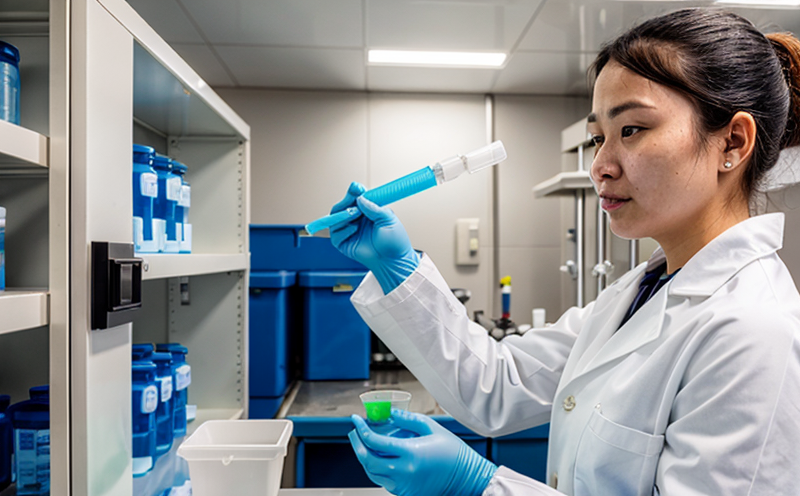USP Sporicidal Efficacy Testing
The USP Sporicidal Efficacy Test is a critical procedure designed to evaluate and verify the effectiveness of sterilization processes against spores, which are among the most resistant microorganisms. This test ensures that pharmaceutical products, medical devices, and environments remain free from viable spores after sterilization.
Compliance with USP Chapter 71 is essential for manufacturers aiming to meet regulatory standards for sterility assurance in healthcare settings. The test simulates real-world conditions where the presence of spores could compromise product safety or patient health. It involves inoculating a suitable medium with a known quantity of spores, exposing it to the sterilization process being evaluated, and then incubating to observe any growth.
The USP Sporicidal Efficacy Test is not just about ensuring sterility; it also plays a crucial role in validating that the chosen sterilization method can neutralize all forms of spores present. This includes both vegetative cells and their dormant spore states, which are particularly resistant to standard sterilization techniques.
The test apparatus typically consists of a growth medium suitable for spore detection, such as tryptone soy broth or thioglycollate medium. The specimen preparation involves inoculating the medium with a standardized suspension of spores and incubating under controlled conditions that mimic actual usage scenarios. The exposure to various sterilization methods (e.g., autoclaving, ethylene oxide, hydrogen peroxide gas plasma) is carefully documented.
After processing, the samples are incubated for an extended period to allow any surviving spores to germinate and form visible colonies. This process can take several days or even weeks depending on the type of spore involved. The results are then compared against a control sample that has not been exposed to the sterilization process.
The acceptance criteria for the USP Sporicidal Efficacy Test are stringent, requiring complete inactivation of all spores present in the test medium after exposure to the sterilization method being evaluated. This ensures that any residual spores do not pose a risk to patients or users of the product.
- Customer Impact and Satisfaction: Ensuring that pharmaceutical products meet stringent sterility standards is crucial for maintaining public trust and safety. The USP Sporicidal Efficacy Test directly impacts customer satisfaction by providing assurance that medical devices and environments are free from harmful microorganisms.
The test's rigorous nature underscores the importance of accurate and reliable testing, which is why it holds a prominent place in pharmaceutical quality control protocols. By adhering to these standards, manufacturers can demonstrate their commitment to patient safety and regulatory compliance.
EuroLab offers unparalleled expertise in USP Sporicidal Efficacy Testing, providing clients with a comprehensive understanding of the testing process and its implications. With our team of experienced microbiologists and quality assurance specialists, we ensure that every test is conducted according to the latest guidelines and standards.
Our state-of-the-art facilities are equipped with the most advanced instrumentation necessary for accurate spore detection, including incubators capable of simulating real-world conditions. This allows us to provide precise results that can be relied upon in regulatory submissions.
EuroLab's commitment to quality is reflected in our adherence to international standards such as USP Chapter 71 and ISO guidelines. Our rigorous testing protocols ensure that we deliver consistent, reliable results every time. Clients benefit from our deep industry knowledge, which enables us to provide strategic insights into the testing process.
Moreover, EuroLab's flexible approach allows us to accommodate a wide range of product types and sterilization methods, ensuring that no detail is overlooked during testing. This comprehensive service ensures that clients can trust in the accuracy and reliability of their test results.





